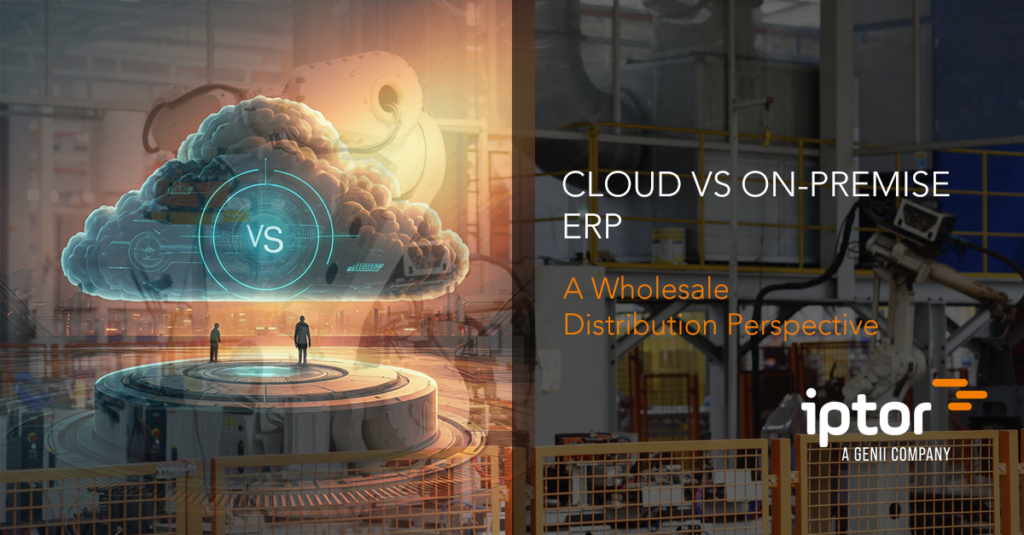A Wholesale Distribution Perspective
Wholesale distribution businesses face unique challenges, including managing complex supply chains, tracking inventory levels, and ensuring timely deliveries. The right Enterprise Resource Planning (ERP) system can be a game-changer in addressing these challenges. This blog post will explore the benefits and drawbacks of cloud and on-premise ERP solutions from the perspective of wholesale distributors.
Cloud ERP for Wholesale Distribution
Cloud ERP systems offer several advantages for wholesale distributors. Their scalability allows businesses to easily adapt to changing needs without significant hardware investments. Furthermore, cloud-based solutions provide real-time access to inventory data, sales information, and customer orders, enabling better decision-making. The mobile accessibility of cloud ERP empowers businesses to manage operations on the go. Additionally, many cloud ERP systems offer seamless integration with transportation management systems (TMS) and warehouse management systems (WMS), streamlining supply chain operations.
On-Premise ERP for Wholesale Distribution
On-premise ERP systems also have their benefits for wholesale distributors. They offer greater flexibility to tailor the system to specific business requirements, such as industry-specific workflows or compliance regulations. Businesses have complete control over their data, ensuring compliance with data privacy regulations and maintaining sensitive information within their own infrastructure. On-premise ERP can be used without an internet connection, which can be beneficial in areas with unreliable network connectivity.
Key Considerations for Wholesale Distributors
When choosing between cloud and on-premise ERP, wholesale distributors should consider several factors. The complexity of their supply chain is a key consideration. If a business involves multiple suppliers, warehouses, and distribution channels, cloud ERP’s scalability and integration capabilities may be more advantageous. Data sensitivity is another important factor. If a business handles highly sensitive customer or financial data, on-premise ERP may provide greater control over data security. Additionally, IT resources are a consideration. On-premise ERP requires ongoing IT management, while cloud ERP is typically managed by the provider. Finally, budget is a factor. Cloud ERP often has lower upfront costs but may have higher ongoing expenses, while on-premise ERP typically has higher upfront costs but lower ongoing expenses.
The Bottom Line:
Both cloud and on-premises ERP solutions can be effective for wholesale distribution businesses. By carefully evaluating their specific needs and considering the factors discussed in this blog post, wholesale distributors can choose the ERP option that best aligns with their business goals and objectives.
Don’t miss out on the opportunity to revolutionize your wholesale distribution business. Contact Iptor today for a free consultation and explore how our ERP solutions can give you a competitive edge.
TALK TO US!
AT EYE LEVEL
AND WITHOUT CHATBOTS
Would you like to receive more information about Iptor ERP solution?
We put our know-how at your disposal!


